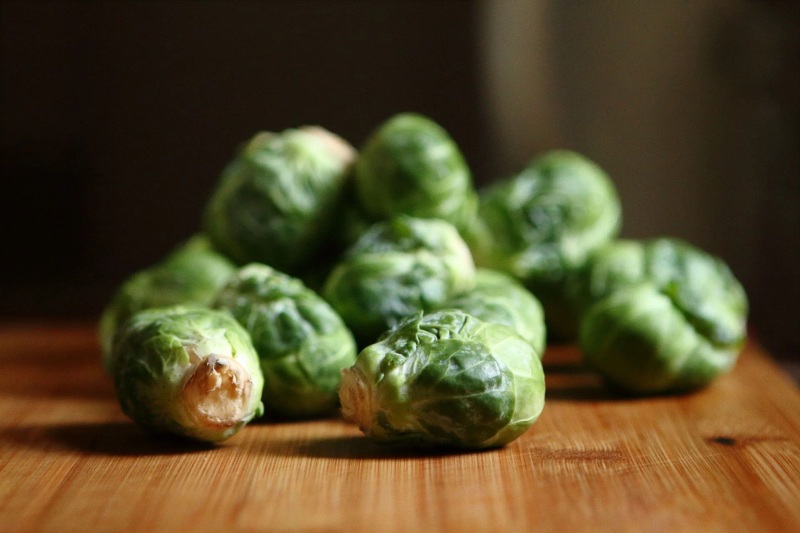Nutritional Snapshot: 100 Grams of Brussels Sprouts Contents

Brussels sprouts are a nutrient-dense vegetable that are loaded with minerals, vitamins, and potent plant chemicals. They provide significant levels of vitamin C, K, and folate in addition to being low in calories and high in fiber.
Nutritional Profile of Brussels Sprouts
A 100-gram serving of them contains the following nutrients:
Calories: 43 kcal
– Carbohydrates: 8.95 grams
– Dietary Fibre: 3.8 grams
– Sugars: 2.2 grams
– Protein: 3.38 grams
– Fat: 0.3 grams
– Vitamin C: Brussels sprouts are rich in vitamin C, providing about 85 milligrams per 100 grams.
– Vitamin A
– Vitamin K
– Vitamin B-complex (including B1, B2, B3, and B5)
– Calcium
– Phosphorus
– Iron
– Potassium
– Magnesium
– Copper
– Manganese
– Antioxidants: Brussels sprouts contain various antioxidants, including flavonoids and glucosinolates, which may help protect cells from oxidative damage.
Benefits of Brussels Sprouts for Health
- Heart Health: The high fiber content of Brussels sprouts has been shown to help decrease cholesterol and enhance heart health. Their antioxidants may also lessen oxidative stress and inflammation, which would improve heart health even more.
- Digestive Health: The fiber in Brussels sprouts helps to maintain a healthy digestive tract and encourages regular bowel motions. This can support gut health and help avoid constipation.
- Bone Health: Vitamin K, which is necessary for healthy bones and may help lower the risk of osteoporosis, is abundant in Brussels sprouts.
- Blood Sugar Control: Brussels sprouts are a good food for people with diabetes or those trying to control their blood sugar levels because of its low glycemic index and high fiber content.
- Cancer Prevention: Although additional research is required to prove this impact, the antioxidants and phytochemicals in Brussels sprouts may have anticancer qualities, potentially reducing the risk of some types of cancer.
Can People with Diabetes Eat Brussels Sprouts?
People with diabetes can incorporate Brussels sprouts in their diet. According to Singhwal, they have a low glycaemic index and offer healthy components like fiber and vitamins that can help control blood sugar levels and enhance general health.
Does It Help Expectant Mothers?
Due to its high content of vital minerals like folate, vitamin C, and vitamin K, which are crucial for fetal growth, Brussels sprouts may be advantageous for expectant mothers. Still, Singhwal cautioned expectant mothers to eat Brussels sprouts as part of a well-balanced diet and to limit their consumption because of their high vitamin K level, which can conflict with some medications.
Things to Remember
- Allergies: It’s vital to be aware of any allergic reactions because some people may be allergic to Brussels sprouts.
- Fibre Content: Due to their high fiber content, Brussels sprouts may be uncomfortable for those who are not used to a high-fiber diet if ingested in big quantities.
- Vitamin K Content: Vitamin K, which is abundant in Brussels sprouts, might cause problems with blood-thinning drugs like warfarin. Patients taking such drugs must to speak with their physician prior to routinely eating Brussels sprouts.